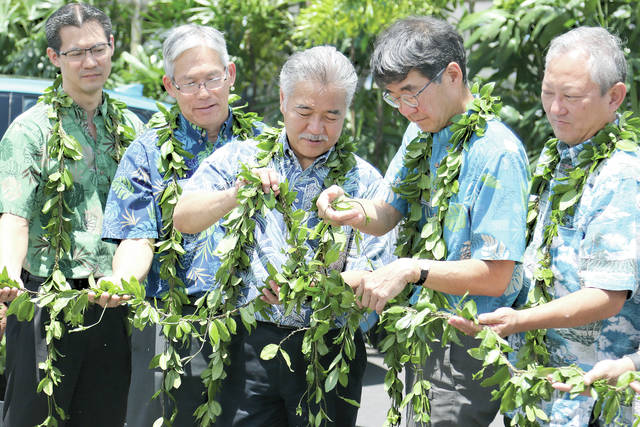Hawaii building 1st public hydrogen vehicle fueling station
HONOLULU — A groundbreaking ceremony was hosted Wednesday for Hawaii’s first public fueling station for hydrogen vehicles, which will enable the state to begin selling cars that only emit water vapor.
ADVERTISING
Honolulu-based Servco Pacific is building the station which it plans to complete it in early 2018. Once it’s operational the company will begin selling the hydrogen-fueled Toyota Mirai.
“I really do see today’s event as the beginning of hydrogen fuel cell vehicles in Hawaii,” Gov. David Ige said during the groundbreaking ceremony.
Hawaii has the most aggressive renewable energy goals in the nation and aims to get 100 percent of its electricity from renewable energy sources by 2045. Ground transportation was not included in that goal, and a bill to extend that goal to vehicles died in the last legislative session.
“If we truly are committed to a 100 percent clean energy future, then transportation is a big challenge,” Ige said.
There are only 38 hydrogen fueling stations nationwide, mostly in California, according to the U.S. Department of Energy. South Carolina, Connecticut and Massachusetts also have stations.
There are more than 1,600 consumer vehicles powered by hydrogen in the U.S., including leased vehicles, and they’re also mostly in California, said Morry Markowitz, president of the Washington-based Fuel Cell and Hydrogen Energy Association.
In Hawaii, there are just a handful of hydrogen-fueled vehicles, primarily used by the military which has its own fueling stations, said Stan Osserman, director of the Hawaii Center for Advanced Transportation Technologies.
“I look at this as a huge, watershed event, because if there are no vehicles, you can’t get stations, and if there are no stations, you can’t get vehicles,” Osserman said. “Toyota and Servco brought both.”
The Toyota Mirai can go for 312 miles before it needs to refuel, which only takes about five minutes, said Mark Fukunaga, chairman and CEO of Servco Pacific.
Servco is spending several million dollars to build the state’s first public hydrogen vehicle fueling station, without any grants or government funding, Fukunaga said. The company will charge in the mid-$50,000 range for the Mirai, which includes the cost of hydrogen fuel for the first three years, and the station also will serve buses or any other hydrogen-fueled vehicles, he said.
“It is about as environmentally friendly as a vehicle can be,” Fukunaga said. “Sometimes you have to bet on the future and we all know that staying purely with a fossil fuel environment is not something that’s responsible or sustainable.”


